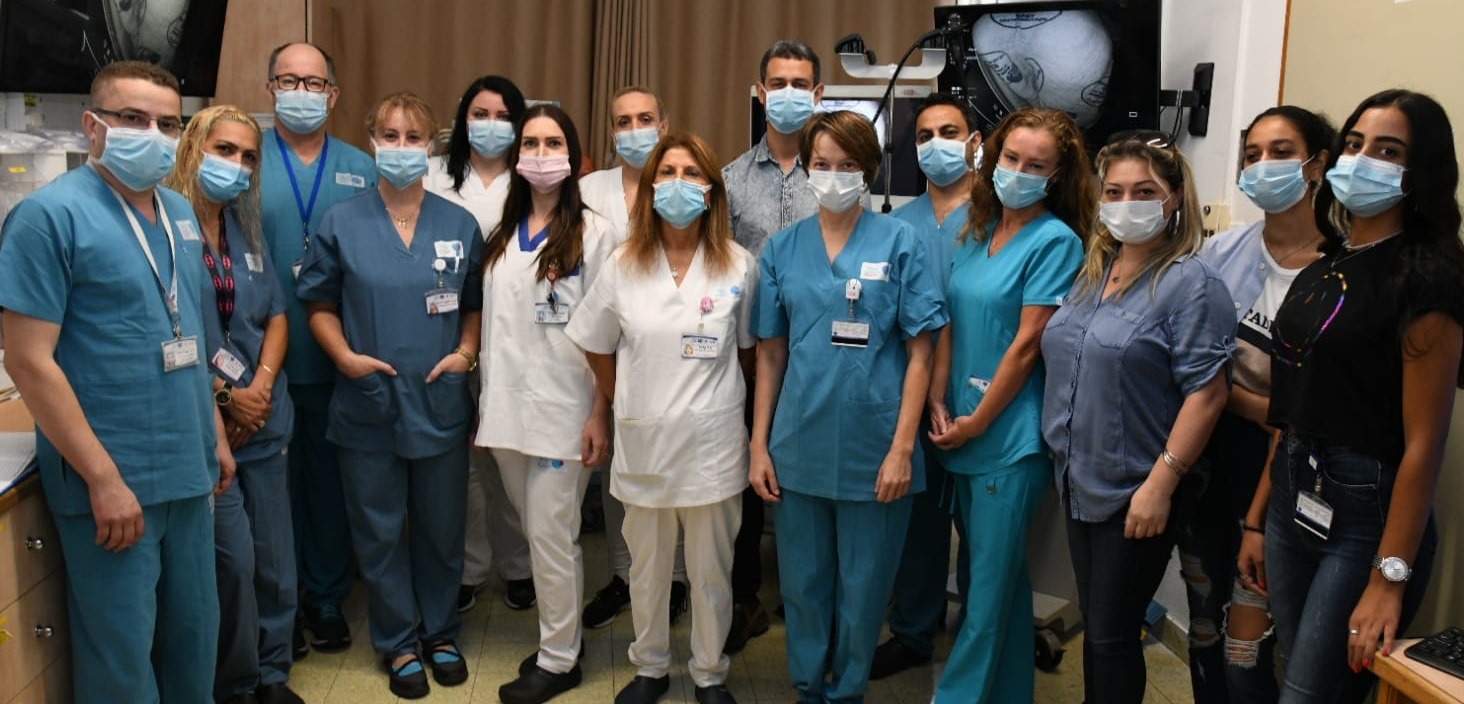Head of the Gastroenterology Institute
Dr. Barkay Olga
Head Nurse
Kadosh Mali
 972-8-6745469
972-8-6745469
Secretary
Maor Ilana
Swissa A'nat
Alexayanko Tania
 972-8-6663305
972-8-6663305  972-8-6745244
972-8-6745244  [email protected]
[email protected]
Location
Building No 400
Senior Physicians
Dr. Benn Bassat Ofer – Head of the inflammatory bowel disease unit
Dr. Feirstein Naveh – Head of the liver disease unit
Dr. Gorodnichenko Anna – Pediatric gastroenterology
Dr. Schwartz Boris
Dr. Al Jamal Baker
Endoscope Technician
Yasso Esti
Opening Hours
Sun-Thurs 08:00-15:00
Activity
The gastroenterology institute was transferred from the outpatient clinic building to its new big and spacious location adjacent to the old building of the emergency department.
The institute offers all the common endoscopic and interventional procedures, conduct follow up of patients and intravenous therapy for specific diseases.
We have special clinics for diagnosing and treatment of:
Liver disease: hepatitis B and C, treatment of non-alcoholic fatty liver, autoimmune diseases of the liver, liver cirrhosis and liver carcinoma.
Contact  972-8-6663305 or
972-8-6663305 or  [email protected].
[email protected].
-
Inflammatory Bowel Disease-Crohn's Disease and Ulcerative Colitis.
-
Irritable Bowel Disease
-
Peptic Disease and Gastro-esophageal Reflux with and without helicobacter infection.
-
Diagnosis of gastrointestinal tumors, colon polyposis.
-
Early diagnosis of colonic tumor program.
-
Foreign body extraction from the esophagus and stomach.

ERCP - endoscopic retrograde cholangiopancreatography: This is a procedure, usually performed under general anesthesia, is intended to diagnose tumor of the pancreas, to extract bile stones from the bile ducts, to dilate the orifice of the common bile duct and to install a stent. It can be also used to diagnose invasion of malignant tumors to the upper gastrointestinal tract by installing a probe to the endoscope.
PEG - percutaneous endoscopic gastrostomy: This procedure is the preferred route for the administration of liquids and ground food to patients who have swallowing difficulties. It is done under local anesthesia or mild sedation where a feeding tube is inserted by the endoscope through the stomach and out to the skin. The patient is released home/ to the nursing home after the procedure.
Esophageal Manometry: This procedure is intended to diagnose the function and the motility of the esophagus, and to diagnose gastro-esophageal reflux using the BRAVO capsule (A pH-sensing wireless capsule that is placed into the esophageal tissue to measure pH levels).
Hydrogen Breath Test: A test to detect the rate of absorption of carbohydrates in the small intestines.
Anorectal Manometry: A test to detect the pressure cascade of the anal sphincter to diagnose the cause of defecation complaints.
Transrectal Ultrasonography (TRUS) - Ultrasonography through a probe inserted in the rectum to diagnose whether the sphincter muscle is intact or torn, especially during vaginal delivery of a baby. This procedure is also used to diagnose the tract of a perianal fistula and invasion of the rectum by malignant tumors.
Cooperation with the ENT staff and the radionuclear imaging staff to diagnose the mechanism of swallowing (endoscopic evaluation of swallowing) and stomach scanning to evaluate the rate of emptying of the stomach.
Academic Activity
¯ The gastroenterology institute is recognized by the Israel Medical Council for residency
in gastroenterology and part of the internship in internal medicine.
¯ The senior physicians of the institute serve as lecturers at the school of medicine of the
Ben Gurion University of the Negev.
¯ The medical staff is involved in international research on inflammatory bowel disease,
hepatitis B and C, non-alcoholic fatty liver and autoimmune diseases of the liver,
including primary biliary cirrhosis and autoimmune hepatitis.